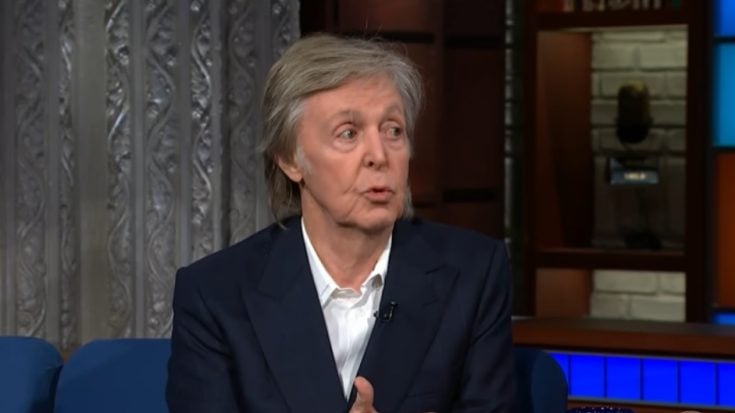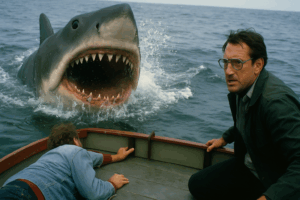What Will Happen To Classic Rock After Legends Are Dead or Done

Paul McCartney on The Late Show with Stephen Colbert / YouTube
The passing of Ozzy Osbourne in 2024 jolted the rock world with a reminder it didn’t want to face: even the most larger-than-life musicians have an expiration date. For decades, it felt like the greats would never stop — the tours, the albums, the unforgettable performances — but time eventually catches up with everyone. The day will come when the Rolling Stones pack up for good, Stevie Nicks steps away from the spotlight, and there’s no living link to the Beatles left.
This looming shift is unlike anything music has experienced before. While songs and instruments have existed for centuries, the era of mass-produced, globally recognized music is barely 80 years old. The rock explosion that took hold from the 1960s through the 1980s produced a wave of artists who not only dominated charts but reshaped popular culture.
Now, as these icons age and pass on, the question is how their music and cultural impact will survive in a world without them. Will their legacies fade into the realm of history books, or will new technologies and cultural shifts keep their work alive for audiences who never saw them in their prime?
Are Avatars the Next Big Stage Act?
When Kiss announced their final live show in 2023, it wasn’t truly the end — instead, they revealed plans for a new era using virtual avatars. By blending advanced visual effects, motion capture, and immersive technology, the band aims to perform in a way that bypasses physical limitations entirely. For them, it’s not just a novelty — it’s a survival strategy.
Digital performances have already seen mixed results. ABBA’s immersive London residency, which presents a digital version of the group in their youthful prime, has been met with sold-out shows and critical praise. On the other hand, attempts like the holographic Ronnie James Dio tour left many fans feeling disconnected, showing that while the technology is impressive, the emotional connection isn’t always guaranteed.
Even so, the idea has promise. For younger fans who never had the chance to see these acts live, a faithful virtual show could be the next best thing. For the estates managing these artists’ legacies, it offers a way to keep the music — and the brand — active long after the original members have left the stage for good.
View this post on Instagram
How Streaming Is Preserving the Live Experience
As more veteran acts step away from grueling tour schedules, digital platforms have become the go-to alternative for experiencing concerts. Services dedicated to live and archival show streaming have made it possible to watch legendary performances from decades past alongside the latest gigs from current artists.
This approach creates a unique cultural bridge. A fan logging in to see a modern band could just as easily discover a restored recording of a classic rock giant at their peak. For many, these streams aren’t just entertainment — they’re a gateway into an era they never lived through.
Preservation is key here. Old concert tapes are being cleaned up, remastered, and presented in higher quality than was ever possible at the time they were recorded. When the day comes that the big names no longer tour, these archives will be more than nostalgia — they’ll be the lifeblood keeping classic rock’s energy and history in front of audiences worldwide.
Rock, Commerce, and the New Normal
The old accusation of “selling out” has little weight in today’s music world. Rock merchandise and branded products are everywhere, from department store t-shirts to limited-edition collectibles. Far from being a betrayal of rock’s rebellious roots, this kind of commercial presence has become one of the genre’s strongest survival tools.
The same applies to music rights. In recent years, many rock legends have sold the rights to their catalogs for staggering sums. While these sales mean others now control how the songs are used, it also ensures the music continues circulating — often in unexpected places like commercials, movie trailers, or viral videos.
This level of exposure might frustrate some purists, but it guarantees that the music finds new ears. When a riff from a decades-old hit soundtracks a major ad campaign or trends on social media, it pulls the genre into the present. In a future without its originators, that might be exactly what keeps classic rock from fading away.
When the Band Lives On Without the Originals
In recent years, some legendary band names have continued to fill arenas even without their founding members. Queen still headlines massive shows without Freddie Mercury, and the Grateful Dead’s legacy has carried on through variations like Dead & Company. In some cases, as with Lynyrd Skynyrd or Blood, Sweat & Tears, there’s not a single original member left on stage — yet the ticket sales and sing-alongs keep coming.
This approach divides fans. Some argue that without the original lineup, the magic simply isn’t there and the name should be retired. Others believe the music belongs to the fans as much as the musicians, and if talented performers can bring those songs to life, then the spirit of the band remains intact.
Whether loved or criticized, these lineups prove one thing: the brand of a legendary band can sometimes outlive the people who built it. And in the decades ahead, this model might become more common, especially as estates, record labels, and audiences work together — consciously or not — to keep the music alive on stage.
View this post on Instagram
The Role of Technology in the Next Era
Technology will be a deciding factor in how classic rock survives in the decades to come. From high-resolution virtual reality concerts to interactive lighting synced with performances in your living room, the tools for making the at-home experience more immersive are rapidly evolving.
We’re moving toward a future where a fan could “attend” a recreated 1970s stadium show wearing a VR headset, with the sound, visuals, and even the atmosphere tuned to feel as authentic as possible. Beyond nostalgia, this offers a way for future generations to experience iconic concerts that would otherwise be lost to time.
While these innovations won’t replace the electricity of a real crowd in front of a living, breathing band, they may help preserve something essential: the emotional impact of the music. For classic rock to thrive after its legends are gone, connecting that feeling to new audiences will be crucial.
Why the Music Will Outlast the Musicians
Even as the faces behind the songs fade from the stage, the music itself has proven remarkably durable. Rock’s greatest hits have become part of the cultural fabric — played at sports events, woven into movie soundtracks, and rediscovered by young listeners every day through streaming and social media.
This is partly because the core themes of classic rock — freedom, rebellion, love, loss, and personal triumph — are universal. Whether you first heard a song in 1974 or 2024, the emotions it stirs remain the same. That timeless quality gives the genre an advantage over trends that burn bright and disappear.
The challenge will be keeping these songs accessible in a rapidly changing music landscape. But as long as there are new platforms to carry them forward, from traditional radio to algorithm-driven playlists, classic rock will continue to find fresh audiences.
View this post on Instagram
A Future Built on Legacy
The end of the road for rock’s original giants is inevitable, and Ozzy Osbourne’s passing was just one sign that the torch is already being passed. The next chapter for classic rock won’t look the same — it will involve avatars, archive streaming, tribute lineups, and global merchandising. But different doesn’t mean dead.
In some ways, the future may offer more ways to experience the genre than ever before. A teenager in 2050 might discover Fleetwood Mac through a VR concert, buy a Led Zeppelin hoodie in a local shop, or stream an immaculate restoration of a Rolling Stones show from 1969 — all without the original members still living.
Classic rock may no longer have the flesh-and-blood heroes who created it, but its stories, its sound, and its spirit have too much cultural weight to simply disappear. The legends will pass, but the music they gave the world will remain — loud, defiant, and impossible to forget.













